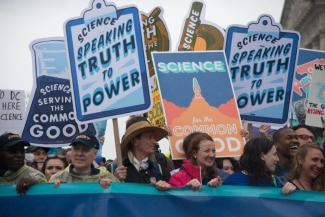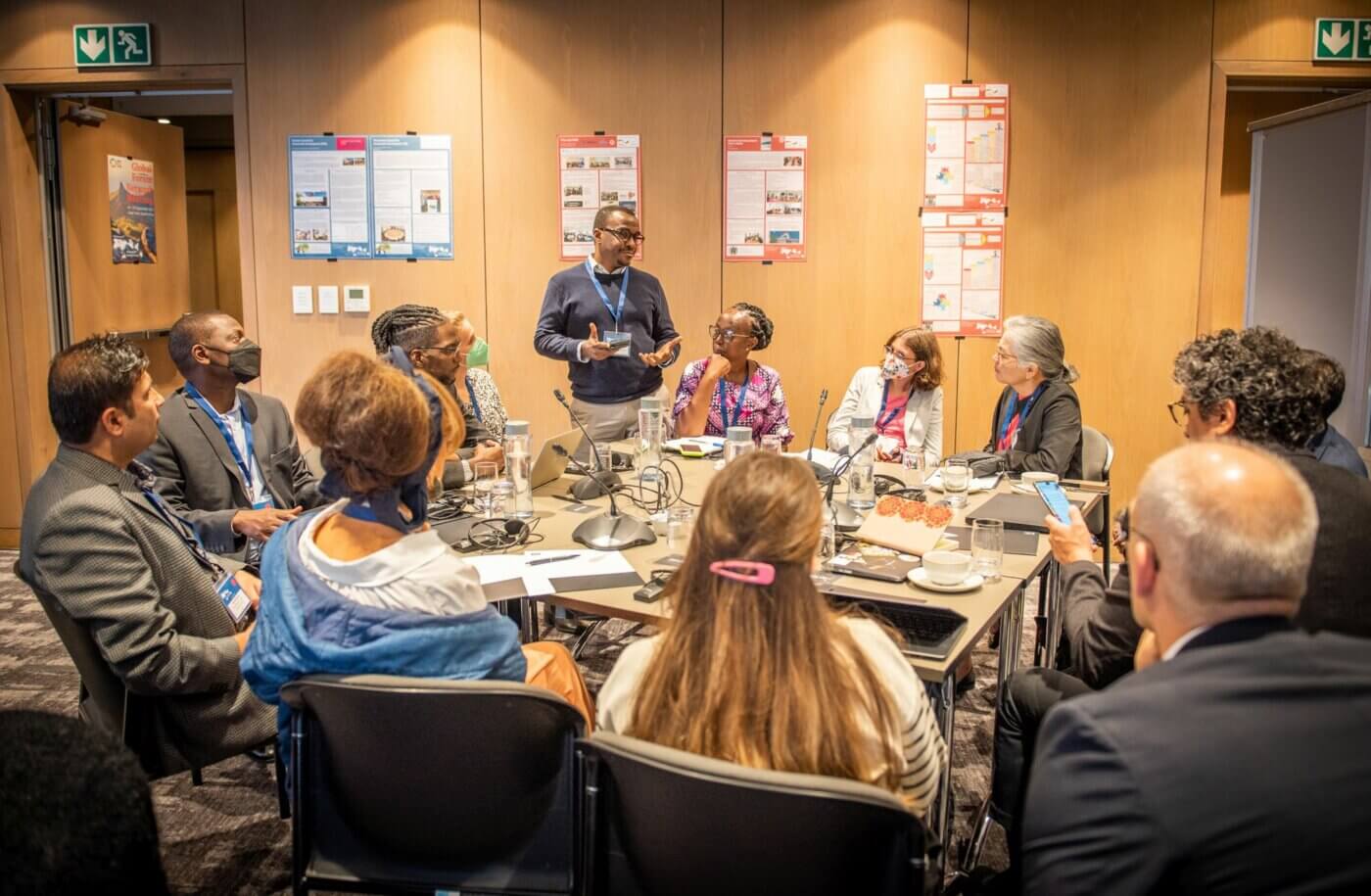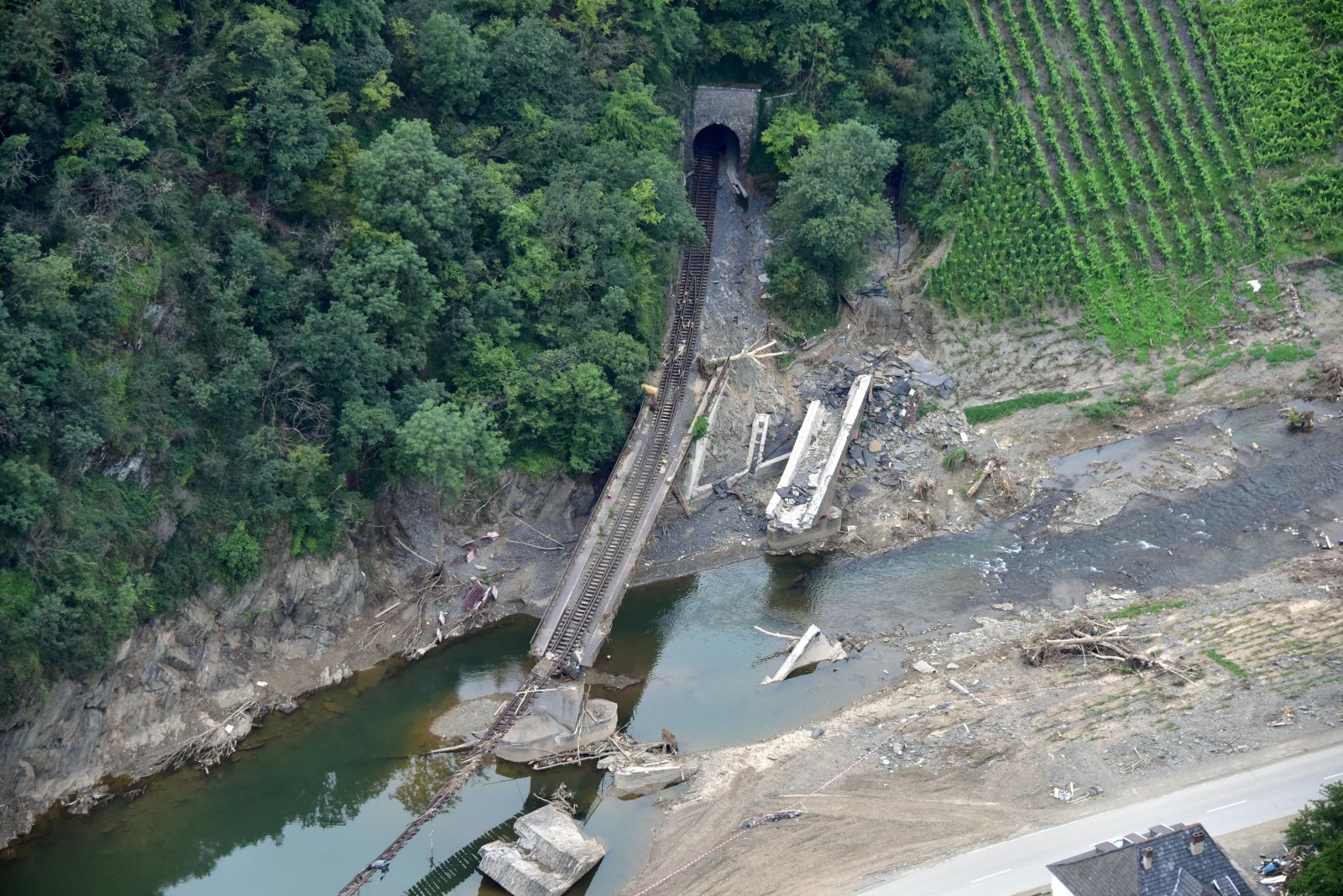USA
“The Republican party must wake up”

The Republican party is very unusual among the dominant political forces in highly developed countries. Who is driving its anti-environmental agenda? All of its leaders deny human-caused climate change.
No, that is not true. Some elected officials in the Republican party understand the science, but that of course is not enough. Even though there are elected Republicans at the local, state and national level that are addressing climate change, the party as a whole continues to back the interests of the fossil fuel industry. Those Republicans who understand the climate crisis, must be a loud resistance to the stance the Trump administration is taking.
Yes, but they are the minority among Republicans. They were not even close to stopping President Trump from quitting the Paris agreement. Who is supporting him?
I see a combination of forces. The two most important are fossil-fuel industries – including the oil sector – and the anti-globalists, such as Steve Bannon and Scott Pruitt.
- The fossil-fuel lobby has ferociously protected its interests for a long time. For example, Charles and David Koch, two brothers whose billionaire-wealth is based on oil and gas, have spent a lot of money to cast doubt on climate change. Climate-change denying think tanks and media outlets have been supported by other donors as well. In view of the scientific evidence, the fossil-fuel lobby is now only holding on by the fingernails, and its leaders consider Trump an opportunity for implementing irresponsible policies.
- The anti-globalists, such as Steve Bannon, claim that the USA is being hamstrung by international commitments and must break free again. They oppose any kind of multilateral policy-making. According to their destructive ideology, all nations compete with one another and there is no such thing as collaboration around shared interests or global public good.
The Republican party must wake up to the fact that its leader in the White House is irresponsible. Science denial is not tenable.
To what extent has Trump managed to undermine the Paris agreement?
Not at all. Trump actually galvanised more support for the agreement, both in the USA and globally as seen at the G7 and G20 summits. In the longer run, however, US policy certainly matters. After all, the country is historically the largest climate gas emitter. The USA must keep reducing emissions, which is supported by a majority of people in the USA.
Michael Bloomberg, the philanthropist billionaire and former mayor of New York City, says that the USA will fulfil its climate obligations in spite of Trump. Is he making sense?
On the fact that emissions can and will continue to decline despite Trump, yes, he is. The economics is clear. There will be no renaissance of coal because investors are shying away from that fuel. The increased access and affordability of renewable energy brings economic benefits. The power sector’s transition to cleaner options is unstoppable, so emission reductions are likely to stay on track as spelled out in previous President Barack Obama’s Clean Power Plan. A lot is happening in transportation too, just consider electric cars. Moreover, it takes a long time to roll back regulations, just like it takes a long time to introduce regulations. The administration’s attempts to roll back the actions of the Environmental Protection Agency will be slowed by legal action in the courts. Importantly, state-level and local policy-making also matter very much.
In what sense?
One example is that, for decades, the precedent-setting driver of limits on car emissions in the USA has been California, not the Federal Government. The reason is that California is the most populous state, and car makers must meet its pollution standards to sell their products in this important market. California has also been a driver of climate protection for a long time. Other states are moving forward too. Iowa, for example, is run by a Republican governor. It is on track to have 40 % of its electric power generated by wind farms. So yes, Bloomberg has a point, a lot can be done bypassing the White House.
But will it be enough? Humanity needs fast action to keep global warming below two degrees on average.
It will require local governments, cities, states and the private sector to do the right thing. There is a dynamic movement called “We are still in”. It includes prominent political leaders and business people who want the USA to live up to its climate responsibility. Opposition of this kind is imperative. But yes, the big question is whether this will be enough to scale up and accelerate action. We cannot afford to lose four years under the Trump administration.
In Copenhagen in 2009, Obama and the other leaders of the industrialised nations promised that an annual $ 100 billion in public and private funding will be made available for climate mitigation and adaptation in the developing world from 2020 on. Will the USA live up to that promise?
Well, the USA is basically able to pay, so it should continue pay. Until 2020, there will not be a big gap, because the Obama administration already transferred about a third of the money promised until then to the multilateral Green Climate Fund. Moreover, opinion polls show that there is strong support in the USA for building the resilience of poor countries, and that is even so in very conservative areas. So there is scope for action. Trump’s budget proposals, however, have not prioritised climate issues, quite the opposite, so other governments and banks will have to step in and increase their contributions. At the climate summit in Bonn in November, we need to hear announcements from other developed countries. They must reassure vulnerable nations that the rich countries will not leave the disadvantaged ones alone, without any support.
How do you assess the climate performance of European countries so far?
Their current stance is mixed. Their commitment to the Paris agreement as shown in the G7 and G20 is strong, but their national implementation does not match the rhetoric. Consider Germany, for example: your Federal Government has been dragging its feet on electric mobility, and it is still far too slow on phasing out coal. Germany must step up its ambitions, and so must the EU and its other member countries. Europe should grasp this opportunity to lead; its people want change. Europe’s leaders must understand that climate change is a fundamental economic fact. It is not some side issue. Things are actually quite simple: without environmental sustainability, there can be no financial stability, no job stability, no social stability. If Europe does not turn the corner, it will decline.
You just said that banks also have a role in making sure that the $ 100 billion for mitigation and adaptation flow to the developing world as promised. Are you thinking of multilateral or private-sector banks?
Both must play their part. In the context of the Paris agreement, the multilateral banks are actually committed to the zero-emissions goal. The G20’s Financial Stability Board, which makes recommendations concerning the global financial system, has stressed that financial institutions must always consider the material risks of climate change. Of course, private-sector banks need to act too. Greenpeace is observing and engaging the financial industry. We’re very active in pointing out irresponsible and unsustainable investment practices.
I recently asked my local cooperative bank in Frankfurt whether they had any products on offer for retail investors like me who would like to contribute to private-sector climate finance. The response was that the idea was interesting, but they did not have any relevant product. The implication was that they will probably act once some kind of government scheme promoting such investments is put in place. To date, that has not happened, and they are not taking the initiative on their own. Is Wall Street any better?
No, at least not yet. But banks’ attitudes are shifting. HSBC, the British-based multinational bank, recently pledged to ensure that its financing will not contribute to deforestation by the palm oil industry. Forests are important carbon sinks and centres of biodiversity, so Greenpeace is focusing on this topic. Our experience shows that banks – which increasingly view fossil fuels as poor investments – reconsider business issues when one makes them aware of problems. No matter who is in the White House, the financial-industry managers know that they must pay attention to what the public thinks and expects. Determined civil-society activism makes a difference.
Jennifer Morgan is executive director of Greenpeace International.
http://www.greenpeace.org
















